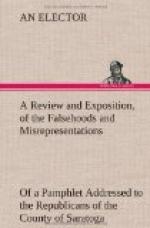“I would let the Irish have Home Rule,” said recently Mr. Winston Churchill, “for their own idiotic affairs.” But the last word came from Lord Morley, the “father of Home Rule.” “Give it them,” he said, in friendly, private counsel, “give it them; let them have the full savour of their own dunghill civilization.”
But the last word of all will come, not from Lord Morley, or “Home Rule,” but from the land and the myriad peoples whose ancient civilization, Lord Morley, like every preceding Viceroy, has striven to bury under the dunghill of British supremacy in India, and to hide the very outlines of the ancient body of the set designs of a new purpose. The capital of British India is to be the “new Delhi,” planned in Whitehall, but paid for in India—the apotheosis of dung. The new India will make short work of “the new Delhi.”
“An unplumbed, salt, estranging sea” of moral and spiritual separation sets between the imperial conception as nourished in Britain and the growing hope of the great millions of mankind who make up the greatest realm of her empire.
Ireland might be bought or bribed, at any rate in this generation, to forfeit her national ideals and barter the aspiration that six centuries of contact with England have failed to kill; but the 350,000,000 of Indian mankind can never be, or bought, or bribed in the end.
Even if Ireland forgot the deathless words of Grattan, delivered in the subordinate Parliament of 1780, those words will find a response in the hearts of men who never heard of Grattan. For the voice of the Irish patriot was, in truth, a world voice—a summons to every audience wherever men gather in quest of freedom. The prophesy Grattan uttered in the name of Ireland assuredly will be fulfilled, and that in the life time of many of us, in that greater Ireland England holds in the eastern seas by the very same tide of raid, conquest and spoliation that has given her our own land.
Substitute India for Ireland and the Grattan of 1780 becomes the Indian patriot of to-day.
“I will never be satisfied so long as the meanest cottager in Ireland has a link of the British chain clanking in his rags; he may be naked, he shall not be in irons; and I do see the time is at hand; the spirit has gone forth, the declaration is planted; and though great men should apostasize, yet the cause will live; and though the public speaker should die, yet the immortal fire shall outlast the organ which conveyed it, and the breath of liberty, like the word of holy men, will not die with the prophet, but survive him.”




